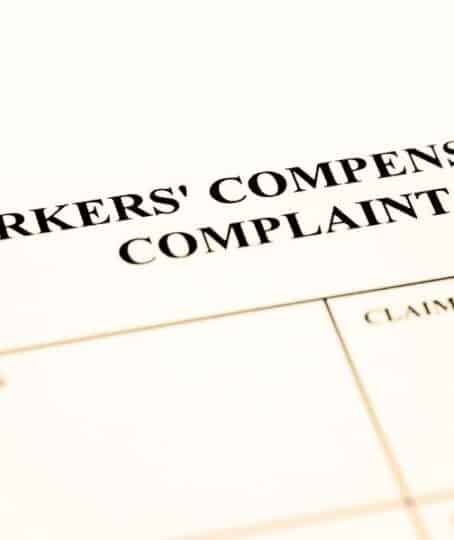
A construction worker was injured in a Peoria County construction zone after a delivery van crossed into a closed lane...


Knowing how to file a workers’ comp claim for workplace exposure can help you take the first steps toward your recovery.
To file a workers’ comp claim for workplace exposure in Illinois, you must first get medical treatment, notify your employer within 45 days, and submit an Application for Adjustment of Claim with the Illinois Workers’ Compensation Commission (IWCC). These steps protect your right to benefits that cover medical bills, lost wages, and disability.
Because proving that toxic chemicals at work caused your illness can be challenging, documenting your symptoms, medical visits, and workplace conditions is just as important as filing on time.
With the right approach, and a workers’ compensation attorney on your side, you can improve your chances of securing full workers’ comp benefits after workplace exposure.
If you’ve suffered chemical burns, respiratory illness, or another injury caused by toxic exposure at work, call Strong Law Offices at (309) 393-2928. Your consultation is free.

Yes. Injuries due to exposure to toxic chemicals at work are almost always compensable under workers’ compensation laws. Whether you suffered a chemical burn, developed a respiratory illness, or were diagnosed with a long-term occupational disease, you are entitled to benefits if you can prove the injury or illness was caused by workplace exposure.
Importantly, you do not need to show that your employer was at fault. Workers’ compensation is a no-fault system, meaning benefits are available even if your employer took safety precautions or complied with federal regulations.
In some cases, injured workers may have a third-party claim for their workplace injury. For example, agricultural workers might be able to sue Syngenta for injuries caused by Paraquat exposure.
According to the Bureau of Labor Statistics, more than 658,000 workers were injured by exposure to harmful substances in 2021 and 2022 alone. This is a sharp reminder that workplace toxins remain a serious hazard across the U.S.
If you have come into contact with chemicals or toxins at work, you should take the following steps to increase your chances of prevailing in a workers’ comp claim:
You generally have three years from the injury or two years from your last compensation payment to file with the IWCC.
Generally, no. Workers’ comp is the exclusive remedy against employers. However, you may pursue a third-party lawsuit if a manufacturer, contractor, or another company caused your exposure.
You can appeal through the IWCC. Many denials are overturned with strong medical evidence and legal representation.
Filing a workers’ comp claim for workplace exposure can be intimidating, but knowing the process gives you a head start. From medical treatment and timely reporting to official filing with the IWCC, each step strengthens your case. Don’t let missed deadlines or lack of documentation prevent you from recovering the benefits you need.
Call Strong Law Offices at 309-393-2928 today.

A construction worker was injured in a Peoria County construction zone after a delivery van crossed into a closed lane...

Your Duty to Report a Work Injury in Illinois Under the Illinois Workers’ Compensation Act, injured employees must notify their...

What Factors Determine Your Average Weekly Wage in Illinois Workers’ Compensation? Besides covering your medical bills, workers’ comp gives you...